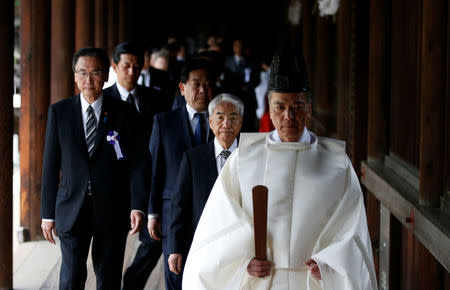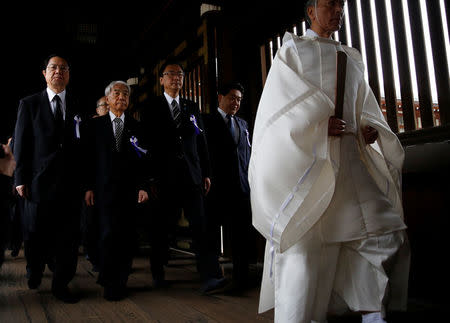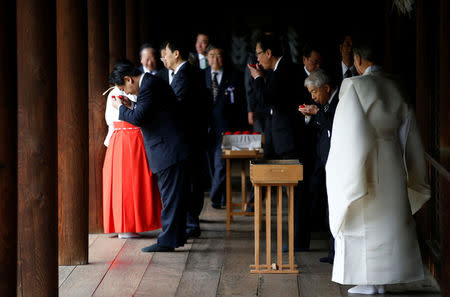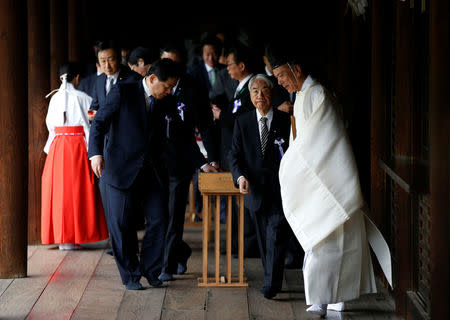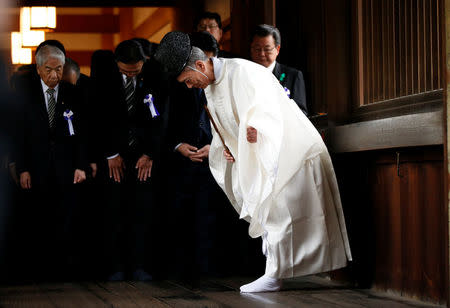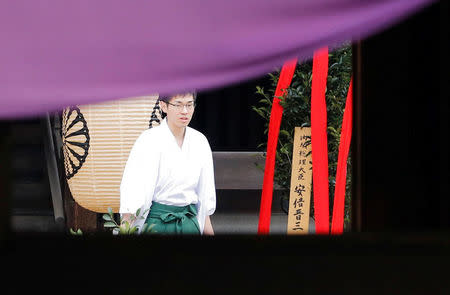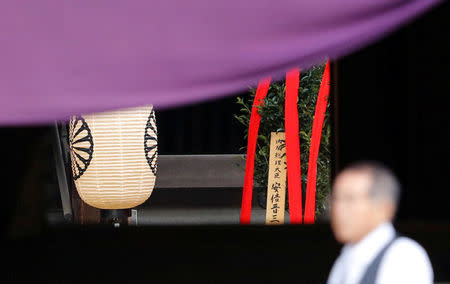Japan lawmakers' group visits Yasukuni shrine for war dead
TOKYO (Reuters) - Dozens of Japanese lawmakers, including one cabinet minister, visited a shrine to Japan's war dead on Friday, in a move that could spark protests elsewhere in Asia where the shrine is regarded as a symbol of Japan's past militarism. Prime Minister Shinzo Abe sent a ritual offering to the Yasukuni Shrine spring festival, which takes place as Japan seeks greater cooperation with China and South Korea in the face of rising tensions over North Korea's nuclear and missile programs. Asian neighbors have been outraged in the past by Japanese politicians visiting the shrine in downtown Tokyo as it honors 14 Japanese leaders convicted by an Allied tribunal as war criminals, along with the other war dead. Around 95 members of parliament paid their respects en masse on Friday, NHK national television said, including Communications Minister Sanae Takaichi, who usually visits during the shrine's twice-yearly festivals and on August 15, the anniversary of Japan's World War Two surrender. Health Minister Yasuhisa Shiozaki sent a ritual offering, like Abe, but neither was expected to visit, NHK added. Abe has visited the shrine only once, in December 2013, since becoming premier the previous year. Rather than attend in person, Abe has instead opted to send ritual offerings on several occasions, in an effort to improve ties with China and South Korea, which have been strained by territorial and other disputes. Chinese Foreign Ministry spokesman Lu Kang said China was consistently opposed to such "wrong moves" by Japanese politicians as the shrine commemorated war criminals. There was no sign that Defence Minister Tomomi Inada, who has been accused by China of recklessly misrepresenting wartime history, had visited or made an offering at the shrine. (Reporting by Kaori Kaneko and Elaine Lies; Additional reporting by Ben Blanchard in Beijing; Writing by Elaine Lies; Editing by Simon Cameron-Moore)
